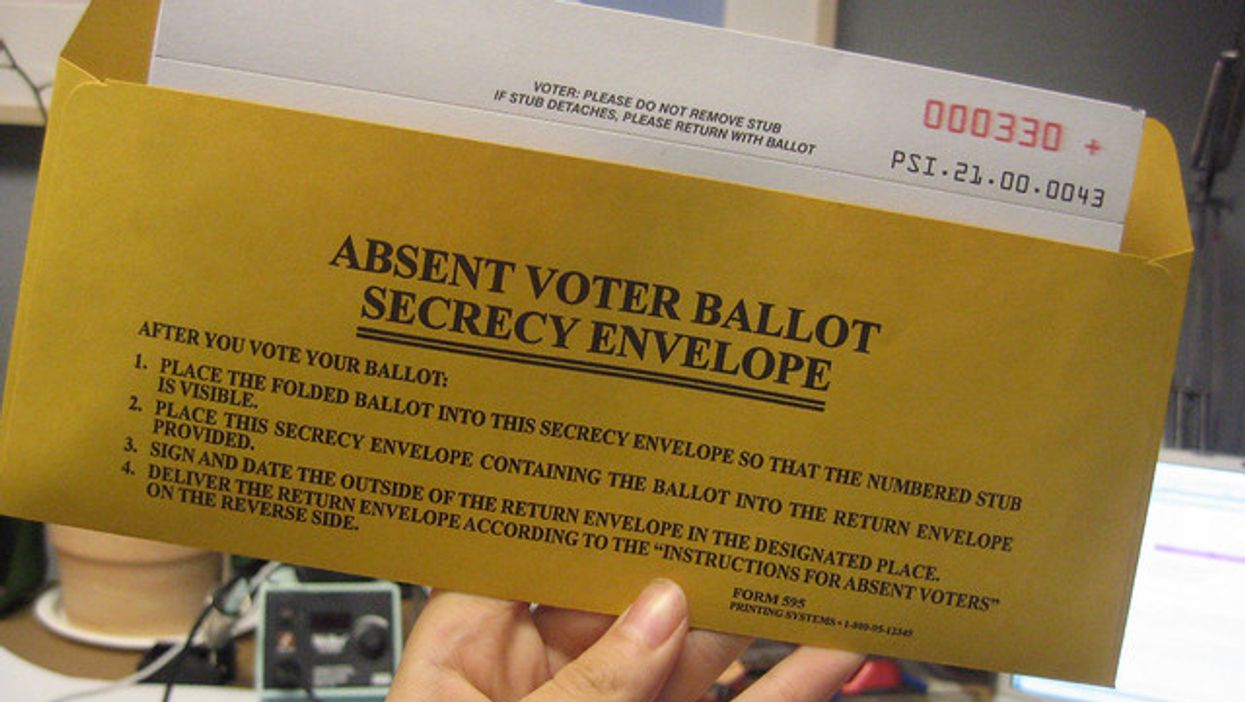Wisconsin’s Bipartisan Election Panel Agrees To Mail 3 Million Absentee Ballots For November

On Wednesday, the Wisconsin Elections Commission agreed to mail absentee ballot applications to nearly 3 million registered voters ahead of November's election, the Associated Press reported.
The decision — which was unanimous by the 6-person, bipartisan commission — is the latest example of a state helping people to vote safely during a pandemic.
The state will mail ballot applications, meaning residents will have to fill the forms out and return them in order to receive an absentee ballot for the election.
In order to cover costs, the commission recommended that the state tap into federal coronavirus relief funds.
The decision in Wisconsin comes after Republicans opposed an effort by Democratic Gov. Tony Evers to move back the date for the primary election, which was held on April 7, to allow more time for absentee voting.
Wednesday's decision is the latest in a trend among many states to allow more absentee voting while the coronavirus pandemic makes going to a polling location a health risk.
On May 19, Michigan Democratic Secretary of State Jocelyn Benson announced that voters in her state will receive absentee ballot applications for both August and November elections.
"By mailing applications, we have ensured that no Michigander has to choose between their health and their right to vote," Benson said about the decision.
On May 8, California Gov. Gavin Newsom, a Democrat, announced that all voters will be mailed a ballot for November's election.
"Elections and the right to vote are foundational to our democracy," Newsom said. "No Californian should be forced to risk their health in order to exercise their right to vote."
New Hampshire Republican Gov. Chris Sununu was the first governor to announce a change for the November election, declaring in April that voters could request absentee ballots if they feared for their health.
As early as March, many states expanded access to absentee voting for primary elections, including Alaska, Delaware, Georgia, Hawaii, Maryland, Massachusetts, Michigan, Montana, and West Virginia.
Despite some bipartisan momentum for more absentee voting, many Republicans across the country are opposed to measures that would let voters avoid the health risks of going to the polls.
On Wednesday, Texas' all-Republican Supreme Court ruled that fear of contracting a deadly, highly infectious virus in the middle of a pandemic was not a good enough reason to request an absentee ballot. Texas has strict limitations as to who can request an absentee ballot, allowing them for voters over the age of 65, people with disabilities, and people who will be out of their county of residence on Election Day.
The court sided with Republican Attorney General Ken Paxton, who had previously stated that making voting safer for more people "damages the integrity of our elections."
In South Carolina, a lawsuit filed by Democratic groups in South Carolina forced the GOP-dominated state Legislature to pass a law in mid-May allowing all voters to be able to request an absentee ballot for an upcoming June election. A spokesperson for the Democratic Congressional Campaign Committee, one of the groups involved in the lawsuit, said at the time that Democrats will "continue to fight for voters' rights in November."
Despite a pandemic that has already killed more than 100,000 Americans, Donald Trump, who has voted by mail in the past, continues to argue against absentee voting.
On Wednesday, Trump tweeted that expanding access to absentee voting would lead to "a free for all on cheating, forgery and the theft of Ballots."
According to voting experts at the Brennan Center for Justice, there is no evidence of extensive voter fraud tied to absentee voting.
"Mail ballot fraud is incredibly rare, and legitimate security concerns can be easily addressed," the group said.
Trump has also pushed forward with attacks on states that want to expand voting by mail.
He attacked the Michigan secretary of state, tweeting on May 20 that her decision to mail ballot applications "was done illegally and without authorization by a rogue Secretary of State."
At one point, Trump threatened to withhold federal funds from states like Michigan and Nevada that are seeking to make it easier and safer for people to vote.
As of Thursday, Trump had yet not carried through on that threat.
Published with permission of The American Independent Foundation.
- Voting By Mail Protects Both Democracy And Public Health ... ›
- Trump Allies Issue Misleading Report On Mail Voting 'Fraud ... ›
- Despite GOP Claims Of 'Fraud,' Most Voters Want Mail Ballots ... ›
- In Some Red States, Partisan Officials Blocking Mail Ballots ... ›
- 'Uncharted Territory’ With Elections Stressed By Pandemic And Protests - National Memo ›
- Why Trump Suddenly Urged Florida Voters To Use Mail Ballots - National Memo ›
- How We Can Prevent Electoral Disaster In November - National Memo ›
- Huge Numbers of Primary Absentee Voters In Swing States Must Reapply For November Ballot - National Memo ›








